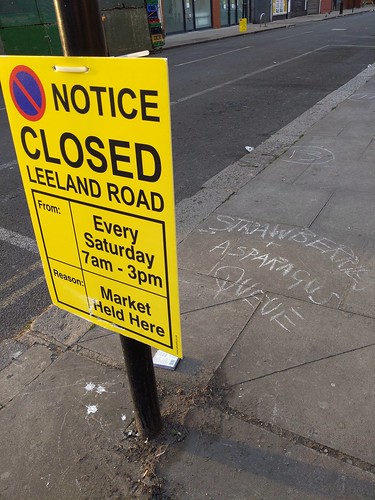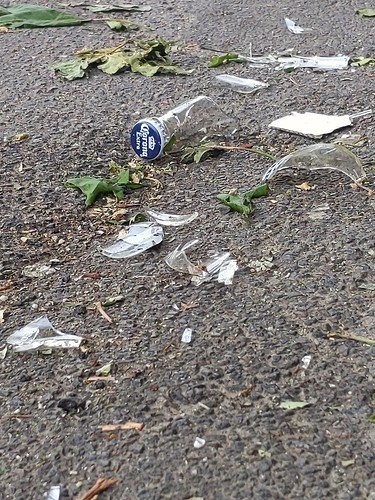London street photography. A London street photographer. Phrases I feel proud to associate myself with. Yet - like a lot of life at the moment - I took for granted what they meant.
Let's look at London. I roamed the West End, celebrating the choreography we each practice to navigate our individual paths through the city, filling the veins of its streets with energy. My London is now as far as I can run to and from my home. Places that some would dispute even are in London! The life on those streets is now represented not by faces. Those I meet are often masked, on their way to work, a memory for me. The frontline feels an apt description as the journey and workplace will mean exposure to the risk of infection and possibly worse.
Street photography for me now is, with grim irony, just that. There are no people in my pictures. The streets themselves take centre stage. The only constant in a future still not fully comprehensible. Along the way there are signs, some explicit, others less so.
Chalking's making a comeback, another echo of an era of austerity, fear and of making do but now I see another meaning. A moment of uninhibited expression in the fresh(er) air away from the confines of the house and family. Front gardens double up as mini circular economy models or impromptu safe distance conversation stations.


High streets and malls are also redefined, shop windows frozen in time, succumbing to a nuclear wind at the moment of the lockdown announcement. Messages of hope to customers, some corporate, some heartfelt. Shop displays decay, winter coats a dissonant reflection of our summer selves. Book pages curl, scrolling themselves into messages for bottles. Plants die and thrive recalling a prophecy from David Byrne.
Doorways and windows have been repurposed as pick up points for the outriders of the gig precariat. Combined with reversing supermarket delivery vans and emergency services vehicles traffic has a disturbing characteristic. The sound of sirens.



It's a world that's familiar but, as referenced a month into the UK lockdown, strange. I feel the current direction of my work is a prelude, documenting a phoney war to adopt the language of our time, before the consequences of these days take hold. As is my style I photograph the everyday, arguably the surface. The New Europe project considered how that's not necessarily opaque.
It reflects and refracts.
One fascinating consequence of the advent of social distancing is an acute appreciation of our bodies in proximity to others. It's second nature to me, and it's been a major motivation for my work, so it's really interesting to observe this go mainstream. I'd love to find out how different cultures are adapting to these circumstances. Is the motivation purely self preservation or a more altruistic? A recent article by Gia Kourlas, the New York Times dance critic poses a great question How are we using our bodies to navigate a pandemic?

Ways of walking is for the moment no longer an independent exercise in getting from A to B. It's now reliant on mutual cooperation, overt or implicit, akin to the social nuances of a Regency society ball. Head-on passing by is sometimes facilitated with eye contact or gesture. The more agile take it upon themselves to pre-empt any confusion and step into the road. This is also a shrewd tactic when overtaking but that domain is replete with the risks of incurring a worse fate by crossing the path of a newly habilitated cyclist or jogger.

How long this behaviour lasts for, like a lot of our new ways of living at the present time, is a matter of conjecture. Situational awareness is no bad thing. Consideration of who we share the streets with, those levelling moments, are a force for change. How we share those streets again is no longer an April Fool.




